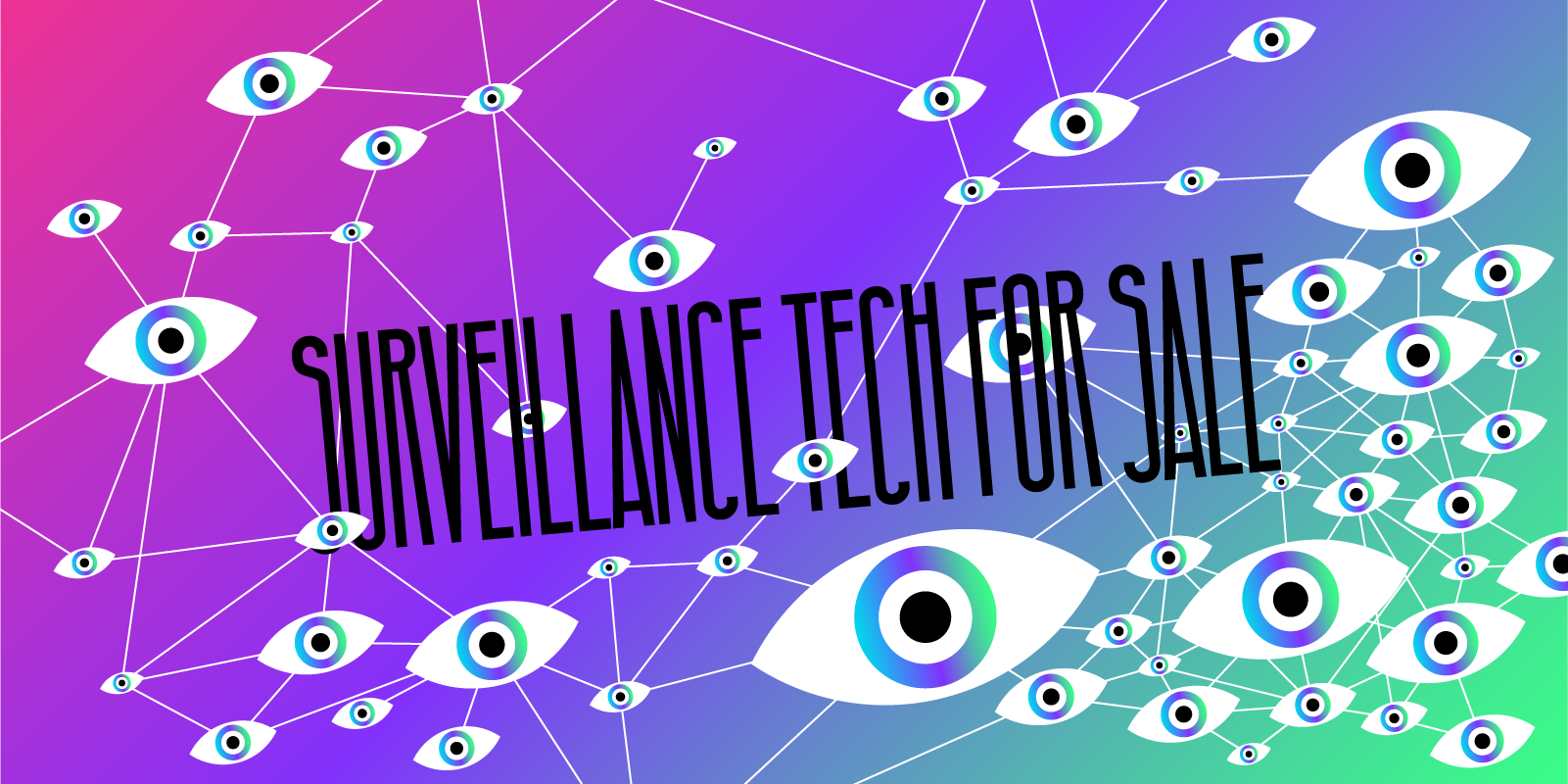Update, October 7th, 2022: We invited the companies to an interview as the last chance to contact them in the cases they have not answered before, and to do a follow-up if they had. We received no answer to the interview request from BGH Tech Partner, Security Team Network S.A, Danaide, Hikvision, Full Tecnología FullTec CIA. LTDA, Huawei, Oi, Unitech S.A, Idemia, Oosto (formerly known as Anyvision), RC International, Unión Eléctrica S.A., ZTE, Dahua, IBM, Verint.
These are the answers we got to the interview request from other companies.
Update, July 21, 2022: Following the publication of this blog, Access Now and the Business and Human Rights Resource Center (BHRRC) contacted all of the mentioned companies. Some of them answered, others remain silent. In the following links, you can see the answers obtained by Access Now and by the BHRRC.
It’s been at least 485 days since we and local partners first tried to contact companies that distribute mass surveillance technology in Latin America. In August 2021, jointly with Asociación por los Derechos Civiles (ADC), the Laboratório de Políticas Públicas e Internet (LAPIN), and LaLibre.net (Tecnologías Comunitarias), we launched a report on some of the companies deploying such tech in Argentina, Brazil, and Ecuador, drawing attention to the opacity of their agreements with the governments. We hope this blog post serves to solicit a serious response from the companies about their operations and responsibility to respect human rights. Below, we share what has happened since we published our report, and the questions we want to see answered.
First attempt: the report
Number of companies that reacted: 0
To put together the report, we and our partners committed to a methodology that included investigation, local reports, and cross analysis.
While we hoped to get answers from the companies making agreements with local governments to implement mass surveillance technology during the research process for the report, those we contacted did not reply. This secrecy has blocked civil society from gaining accountability for those freely collecting our highly sensitive biometric data as we walk down the streets.
This is a public reminder that we are still awaiting a response to our initial contacts in 2020 from the following companies: Anyvision (now rebranded as Oosto); BGH Tech Partner, which might be using technology from Hikvision in Argentina; Cellebrite; Dahua; Danaide, which might be using technology from NTechLab in Argentina; Hikvision and its reseller in Ecuador Full Tecnologia FullTec CIA. LTDA; Huawei; IBM; IDEMIA (previously known as Morpho); NEC; the reseller of Verint in Ecuador Unión Eléctrica S.A.; and ZTE.
Second attempt: #WhyTheyWatchUs
Number of companies that reacted: “1”
In February 2022, we launched a social media campaign about the dangers of foreign mass surveillance technology deployed in countries across Latin America, using the hashtag #PorQuéNosVigilan (#WhyTheyWatchUs). We went from debunking the myths surrounding mass surveillance to a discussion of the human rights violations technology from the companies in question facilitate around the world. We also tagged and reminded companies including Oosto, Hikvision, Dahua, Cellebrite, Huawei, ZTE, NEC, IDEMIA, and Verint that we were waiting to hear back from them.
The only “answer” that we received was a happy face from ZTE Argentina, evidently mocking the fact that the U.S. government considers the company a threat to national security due to its implication in human rights violations.
Third attempt: A new opportunity to answer our questions
Every company has a responsibility to respect human rights. This post is a fresh chance for the companies we have contacted to show how they plan to meet that responsibility.
We are asking the following companies to respond to our questions below, and to comply with global standards for transparency, accountability, and respect for human rights: BGH Tech Partner; Cellebrite and its resellers in Argentina, Security Team Network S.A and IAFIS Argentina S.A (IAFIS also resells Idemia’s tech); Dahua and its reseller in Brazil, Intelbras; Danaide; Hikvision and its resellers in Ecuador, Full Tecnologia FullTec CIA. LTDA and ANDEANTRADE S.A; Huawei and its reseller in Brazil, El Corte Inglés and Oi; IBM and its reseller in Argentina Unitech S.A; Idemia; Johnson Controls; NEC; Oosto (formerly known as Anyvision) and its reseller in Argentina, RC International; Verint and its reseller in Ecuador, Unión Eléctrica S.A.; and ZTE
- Does your company distribute surveillance solutions to governments in Latin America? If so, which products and to which states in Latin America? Which of your surveillance solutions products and services are most widely distributed in Latin America?
- Do third-party companies resell your surveillance solutions to Latin America states? If so, who are your resellers?
- Do you or your resellers have contracts or agreements with Latin American governments to provide surveillance solutions? What do these agreements look like and what technologies are involved?
- What kind of support do you provide to your clients after distributing your surveillance solutions?
- Do you or your resellers have access to data collected in any country in Latin America? If yes: What are the characteristics of that data? According to your privacy policy, could that data be shared with any third parties or companies in the same corporate group?
- Do you have a policy, protocol, or internal process governing your provision of surveillance solutions to governments? Do you do an assessment of the authority’s human rights violations records before closing the agreements? Under what circumstances would you limit or restrict your provision of surveillance solutions to government clients?
- What actions are being taken by your company to ensure that the surveillance solutions that you distribute in Latin America are not being used to abuse human rights?
Companies need to put humans at the center of their decisions regarding products and improve their processes accordingly, including committing to transparency, accountability, and respect for human rights and due diligence procedures; providing remedies to the victims affected by their technology; and, of course, improving their communications around their products and services.
Sigue las cuentas de Access Now para Latinoamérica:
